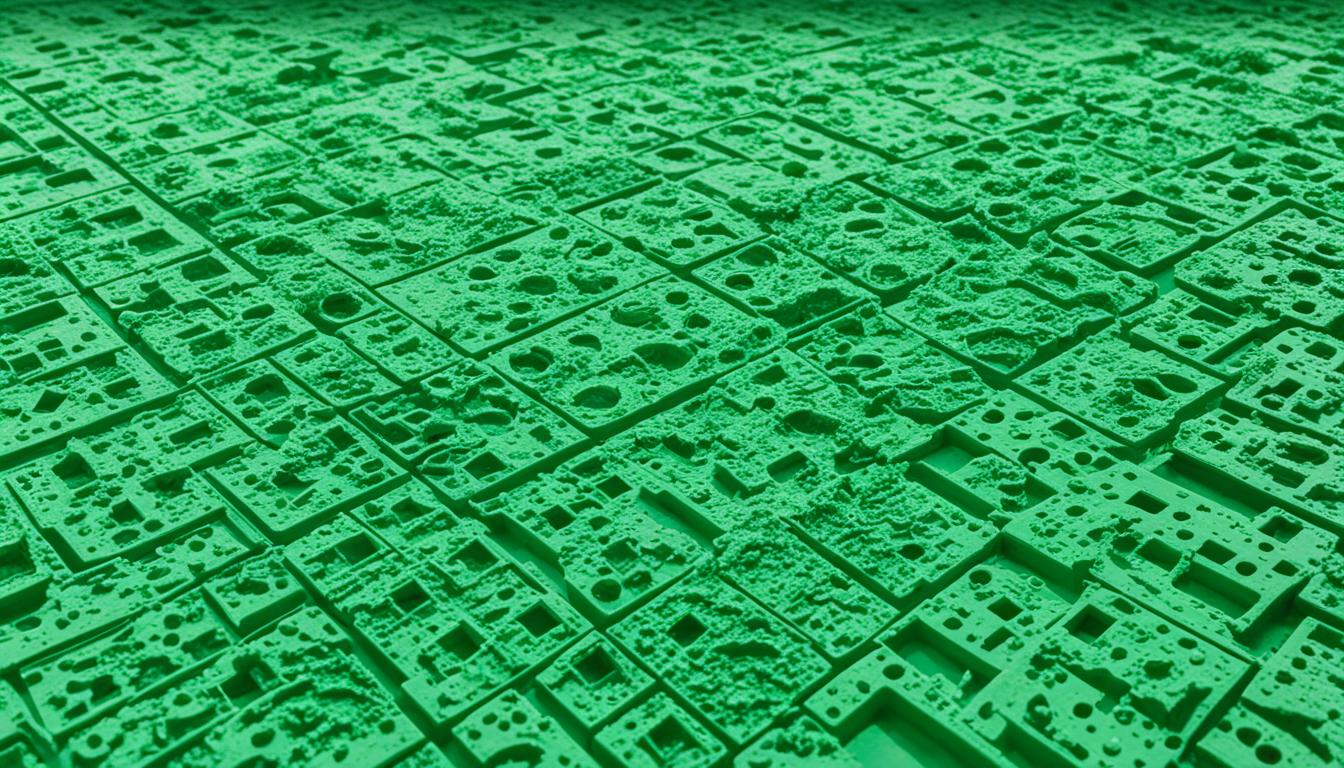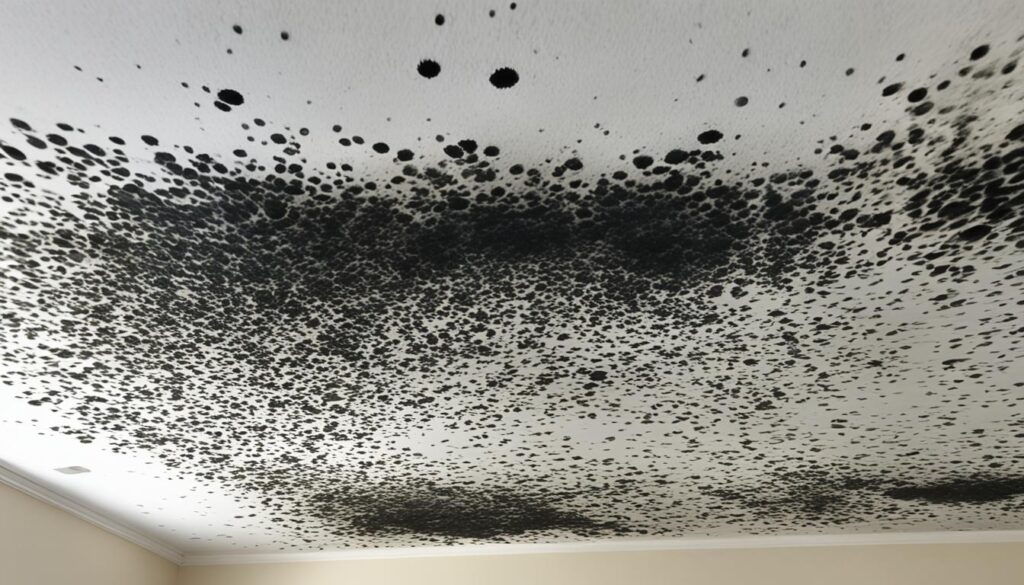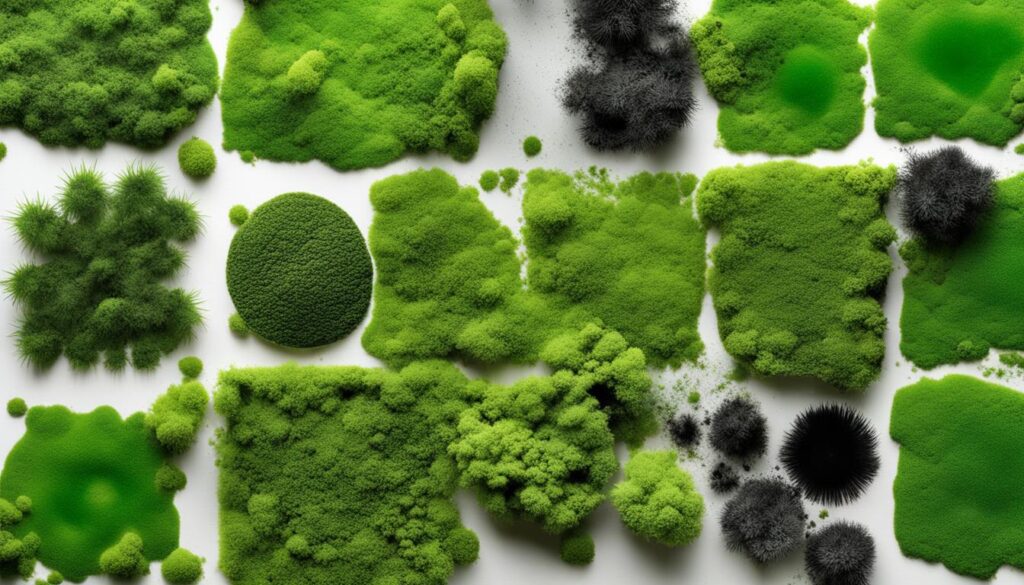
Common Miami Office Molds: Types You Might Find
Mold growth is a common concern for many offices in Miami. While some may think that mold is only present after experiencing water damage, different mold types can develop in the office spaces. It is essential to be aware of these molds to have an effective plan of action on how best to address them.
What are the common types of mold found in Miami offices? Most offices in Miami encounters several types of molds, including Aspergillus, Stachybotrys chartarum, Cladosporium, Alternaria, and Penicillium, just to mention a few.
Key Takeaways
- Mold growth is a common concern for many offices in Miami
- Offices in Miami encounters different types of molds.
- The common types of mold found in Miami offices are Aspergillus, Stachybotrys chartarum, Cladosporium, Alternaria, and Penicillium
Understanding Mold Growth in Miami Offices
If you’re wondering why mold growth is a common issue in Miami office buildings, it all comes down to the warm and humid climate of the city. Miami’s hot temperatures, coupled with high humidity levels provide the perfect environment for molds to thrive and spread throughout workspaces. Additionally, water damage caused by leaks, moisture buildup, and flooding can lead to mold growth – causing a musty odor and visible stains on walls, ceilings, and other surfaces.
Not all mold types are the same, and different varieties will grow in distinct conditions. Some of the most common molds you may find in Miami offices include:
- Aspergillus;
- Penicillium;
- Stachybotrys chartarum,
- Cladosporium;
- Alternaria.
These particular molds grow quickly in Miami’s humid climate and can potentially cause harmful health effects on workers. The best way to tackle mold growth is to prevent it from occurring in the first place. By reducing humidity levels through proper ventilation, fixing leaks, and controlling the amount of moisture in the air, Miami office buildings can effectively decrease mold growth.
However, once mold has already appeared, it’s crucial to contact a professional team to ensure safe and efficient removal. Attempting to clean up mold without the necessary experience and tools can put workers at risk of inhaling harmful spores and lead to further contamination. So, the best option is to reach out to experts who can develop and implement a remediation plan to address the specific mold issue discreetly and effectively.
Stachybotrys Chartarum: The Notorious Black Mold
Stachybotrys chartarum, commonly known as black mold, is a prevalent type of mold found in many Miami offices. This mold species is notable for its black, slimy appearance and its ability to produce mycotoxins, toxic substances that can be harmful to human health.
Black mold can thrive in areas that are consistently damp or moisture-ridden, making it a frequent problem in Miami offices where humidity levels can be high.
Exposure to black mold can cause a range of symptoms, including respiratory issues, headaches, fatigue, and irritation of the eyes, nose, and throat. Long-term exposure may even lead to chronic health problems.
To identify and address black mold in Miami offices, it is crucial to consult with mold remediation professionals who have experience in handling this type of mold. They can conduct a comprehensive assessment of the office environment and recommend effective treatment options.

Characteristics of Black Mold
Black mold is a type of mold that typically appears as dark greenish or black in color. It usually grows in damp or moist areas, such as under sinks, in basements, and around windows and doors. Black mold thrives in warm environments, making Miami offices an ideal breeding ground.
Black mold produces mycotoxins that can lead to a range of health problems.
The spores of black mold are commonly spread through the air and can be inhaled. This can cause respiratory issues such as coughing, wheezing, and difficulty breathing. Some people may also develop skin irritation upon contact with black mold.
Effective Approaches to Addressing Black Mold
Addressing black mold in Miami offices involves a multi-step process that starts with identifying the source of the mold growth and moisture accumulation. An experienced mold remediation team will conduct a comprehensive assessment of the office environment, identify the presence of mold, and determine the extent of the contamination.
It is essential to address black mold promptly to minimize the risk of health problems and prevent further damage to the office workspace.
The remediation process typically involves containment of the affected area, removal of contaminated materials, thorough cleaning, and disinfection. To prevent black mold from returning, it is crucial to address the underlying cause of the moisture accumulation, whether it be a leaking pipe, poor ventilation, or other factors.
Take Action Against Black Mold in Miami Offices
If you suspect black mold in your Miami office, it is essential to take action immediately. Contact Fix Mold at 305-465-6653 for a professional mold inspection tailored to your business needs. Our experienced team of mold remediation experts can help identify and address black mold to ensure a healthy workspace for your employees.
Cladosporium: A Common Indoor Mold in Miami Offices
Cladosporium is a genus of mold consisting of over 500 species frequently found in Miami offices. It can grow on various surfaces, including fabrics, carpets, and wallpaper. Cladosporium thrive in humid environments and typically appear as green, brown, or black colonies.
While Cladosporium is generally not harmful to healthy people, it can trigger respiratory issues in individuals with weakened immune systems or respiratory conditions. Symptoms may include coughing, wheezing, and chest tightness.
Identifying Cladosporium can be challenging, as it often appears similar to other mold species. A professional mold inspection is the best approach to determine the presence and extent of mold growth in the workspace.
The most effective way to prevent Cladosporium growth in Miami offices is by maintaining proper ventilation and humidity levels. It is important to keep indoor humidity levels below 60%. Regular cleaning and maintenance of air conditioning units, ducts, and carpets can also help prevent mold growth.
“Mold can cause a variety of health issues and affect the indoor air quality. It is crucial for businesses to take proactive measures to prevent and address mold growth in the workplace,” said John Smith, CEO of Smith Consulting Group.
If Cladosporium is detected in an Miami office, remediation should be performed promptly. It is essential to use appropriate personal protective equipment and follow industry guidelines for safe and effective mold removal.
Penicillium: The Mold That Causes Allergies
Penicillium is a type of mold commonly found in Miami office buildings. This mold variety can cause allergies and respiratory issues, making it crucial to identify and address promptly.
Exposure to Penicillium spores can result in symptoms such as coughing, sneezing, and watery eyes. In more severe cases, people with weakened immune systems or preexisting respiratory conditions may experience more significant health effects.
To mitigate the impact of Penicillium in Miami offices, it’s essential to start by identifying any moisture issues that can promote mold growth. A professional mold inspection can determine the extent of the mold infestation and identify any underlying causes of mold growth.
Additionally, regular cleaning and disinfecting can help reduce the spread of mold spores. When dealing with an active mold problem, it’s crucial to work with a professional mold remediation company to ensure complete removal and prevent recurrence.
Penicillium Prevention Tips
- Ensure proper ventilation and air circulation in the office
- Address any water damage or leaks promptly
- Keep humidity levels below 60%
- Clean and disinfect regularly
- Remove any visible mold growth immediately
Don’t let Penicillium compromise your work environment. Contact Fix Mold at 305-465-6653 to schedule a mold inspection today.
Aspergillus: A Widespread Mold in Miami Workspaces
Aspergillus is among the most commonly encountered molds in Miami offices. It’s a group of molds, some of which can cause health issues such as allergies, infections, or toxicosis. They can grow undetected on different surfaces and in the air conditioning systems and cause respiratory issues or trigger asthma.
The Aspergillus spores are ubiquitous, and their presence is usually overlooked. These spores can quickly proliferate under the right conditions, including high humidity, damp conditions, and poor ventilation. Moreover, Aspergillus can produce a toxic secondary metabolite called aflatoxin, which can result in liver cancer.
To address Aspergillus mold growth in Miami offices, proper hygiene efforts and moisture management strategies must be set in place. Adequate ventilation and temperature control can prevent humidity build-up and support adequate indoor air quality. Generally, cleaning routines backed by expert guidance can prevent health risks and safeguard employee well-being.
Alternaria: Impacting Indoor Air Quality in Miami Offices
While Alternaria is less commonly known than other mold types found in Miami offices, it can still impact indoor air quality. The mold type is typically found in damp areas, including bathrooms, kitchens, and basements. However, it can also grow on carpets, wallpaper, and furniture.
Alternaria is a known allergen and can trigger respiratory issues, particularly in individuals with weakened immune systems or asthma. Moreover, it can cause eye irritation and skin rashes, making it imperative to keep it under control in workspaces.
To reduce its presence, it is essential to maintain proper cleanliness practices. Cleaning the office thoroughly and regularly, improving ventilation, and fixing any water damage can help mitigate Alternaria growth. In case of severe infestations, professional mold remediation is recommended.

The presence of mold in an office setting is detrimental to both employees and structural integrity. At the first sign of mold, it is essential to take proactive measures and contact a professional remediation team.
Preventing and Addressing Mold in Miami Offices
Mold growth is a common problem in Miami offices due to the warm, humid climate. To minimize the risk of mold growth, it’s essential to implement proactive measures and address mold issues promptly:
- Monitor humidity levels: Keep humidity levels between 30% and 60% to discourage mold growth. Use an air conditioner or dehumidifier to regulate humidity levels.
- Address water damage immediately: Water leaks or spills can lead to mold growth within 24-48 hours. Clean the affected area and ensure it’s thoroughly dry within this timeframe.
- Clean regularly: Regular cleaning will help remove mold spores and prevent them from settling down. Use an EPA-approved mold and mildew cleaner to clean surfaces.
- Improve ventilation: Proper ventilation will help reduce humidity levels and prevent mold growth. Ensure that the office has adequate ventilation, and open windows and doors when possible.
- Use air purifiers: Air purifiers can help remove mold spores from the air and reduce the risk of mold growth.
If you detect mold in your office, take immediate steps to address the issue:
- Identify the source: Conduct a thorough examination of the affected area to identify the source of the mold growth.
- Clean up the mold: Use personal protective equipment and EPA-approved cleaners to clean up the mold. Be sure to follow safety guidelines and discard any contaminated materials properly.
- Address the source: Address the underlying cause of the mold growth, such as a leak or excess humidity levels, to prevent future occurrences.
If you’re unable to address the mold issue on your own, seek professional assessment and remediation services. Hiring a certified mold inspector company like Fix Mold at 305-465-6653 can provide a comprehensive evaluation of your office and develop an effective strategy for mold removal.
Conclusion
As a business owner or manager in Miami, it’s crucial to be aware of the common types of mold that can affect your office environment. By understanding how mold grows and the specific characteristics of various mold species, you can take proactive steps to prevent and address mold issues.
If you suspect mold growth in your Miami office, it’s essential to take immediate action to protect the health of your employees and prevent further damage. Professional mold inspections and remediation services can provide you with an accurate assessment of the mold situation and effective solutions to address it.
Don’t take chances with your workplace environment. Contact Fix Mold at 305-465-6653 for a comprehensive mold inspection tailored to your business needs. Our team of experts is committed to helping you maintain a healthy and safe workspace for your employees and customers.
FAQ
What are the common types of mold found in Miami offices?
The common types of mold found in Miami offices include Stachybotrys chartarum (black mold), Cladosporium, Penicillium, Aspergillus, and Alternaria. These molds can thrive in the humid and warm climate of Miami and may pose health risks if not addressed promptly.
What are the potential health risks associated with black mold?
Stachybotrys chartarum, commonly known as black mold, can release harmful mycotoxins that may cause respiratory problems, allergic reactions, and even neurological symptoms. It’s important to identify and remediate black mold promptly to protect the health of employees in Miami offices.
How can I identify Cladosporium mold in my Miami office?
Cladosporium mold is commonly identified by its olive-green or brown appearance. It may grow in clusters on various indoor surfaces, such as walls, ceilings, or HVAC vents. If you suspect Cladosporium mold in your Miami office, it is advisable to consult a professional mold inspector for proper identification and remediation.
Can Penicillium mold cause allergies in Miami offices?
Yes, Penicillium mold can cause allergies, asthma symptoms, and respiratory issues for individuals exposed to it in Miami offices. It thrives in damp environments and is commonly found on water-damaged materials, including drywall and carpeting. Taking prompt measures to address Penicillium mold is essential for maintaining a healthy workspace.
What are the characteristics of Aspergillus mold found in Miami workspaces?
Aspergillus mold is recognized by its powdery texture and range of colors, including green and brown. It can grow on damp building materials, such as wood or insulation, and may produce toxins that can affect the respiratory system. Proper identification and professional mold remediation are recommended for addressing Aspergillus mold in Miami offices.
How does Alternaria mold impact indoor air quality in Miami offices?
Alternaria mold is commonly associated with water-damaged buildings and can thrive in the humid conditions of Miami offices. Prolonged exposure to Alternaria spores may lead to allergic reactions and worsen asthma symptoms. Ensuring proper ventilation and addressing any moisture issues are crucial for managing Alternaria mold and improving indoor air quality.
How can I prevent and address mold growth in my Miami office?
To prevent and address mold growth in Miami offices, it’s important to control humidity levels, promptly repair water leaks, ensure proper ventilation, and regularly inspect and clean areas prone to moisture buildup. If mold growth is significant or extensive, it’s advisable to seek professional mold assessment and remediation services to eliminate the problem effectively.




